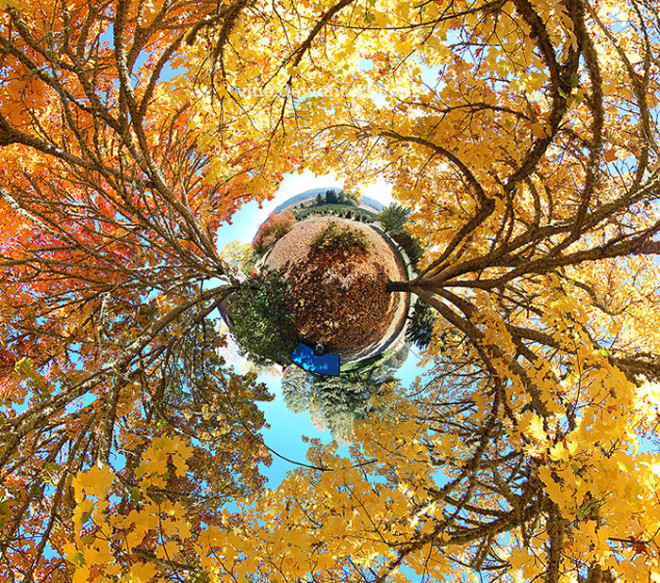Because we live in a science and technology driven world, students of the arts – whether it’s fine art, literature or music – are sometimes scoffed at and asked that one utterly obnoxious question, “So… what do you plan to do with that degree?” (Asked with a mixed look of concern and confusion on their face.) As if everyone expects you to become that cliched “starving artist.” But not to worry! There are plenty of things you can do with an art degree.
Graphic Arts and Design
Graphic design is probably one of the best ways to combine your love of art with some degree of technology. It’s also a great field of study to remain current in today’s job market. Graphic design is the art of communication with the use of words, images and symbols to create a visual stimulus of ideas. Common jobs in this field are: logo and brand creation, print advertising, website design, or you can go the freelance route.

Art Education
Perhaps the most obvious choice (other than creating the art yourself, like being a painter or a vocalist) is to teach others what you know. It’s a common misconception that teaching is the only “real” job available with many art degrees. But you’ll learn here that that simply isn’t true. And besides, if you do decide to pursue teaching in your field, where’s the shame in that? Teachers are some of the greatest unsung heroes in our society, and devoting your time and effort to impart wisdom on others is most definitely a noble calling.
Museum Work
If your passion lies in fine arts and art history, museum work could be a great choice. You could be the curator for the Park West Gallery in Michigan or a tour guide for the Smithsonian. Museum employees get to work with the general public while sharing their knowledge and love of the arts.
Interior Design
Interior design is just like it sounds – designing the layout of the interior of a room or building. It may seem simple, but just like with any artform, there are specific techniques that add to the conceptual development and flow of the space. You can specialize in residential or commercial design, designing museum exhibitions or events like weddings, conventions or concerts.
These are just a few examples of the options that are available to art majors. Sure, some of these fields of work require some extra education, such as a teaching certificate or some specific coursework, but all require an eye for art. Don’t be afraid to follow your passion just because the current job market leans more toward science, technology and medicine. There will always be a need and a desire for the arts – it’s human nature to want to create and surround ourselves with beautiful things.
